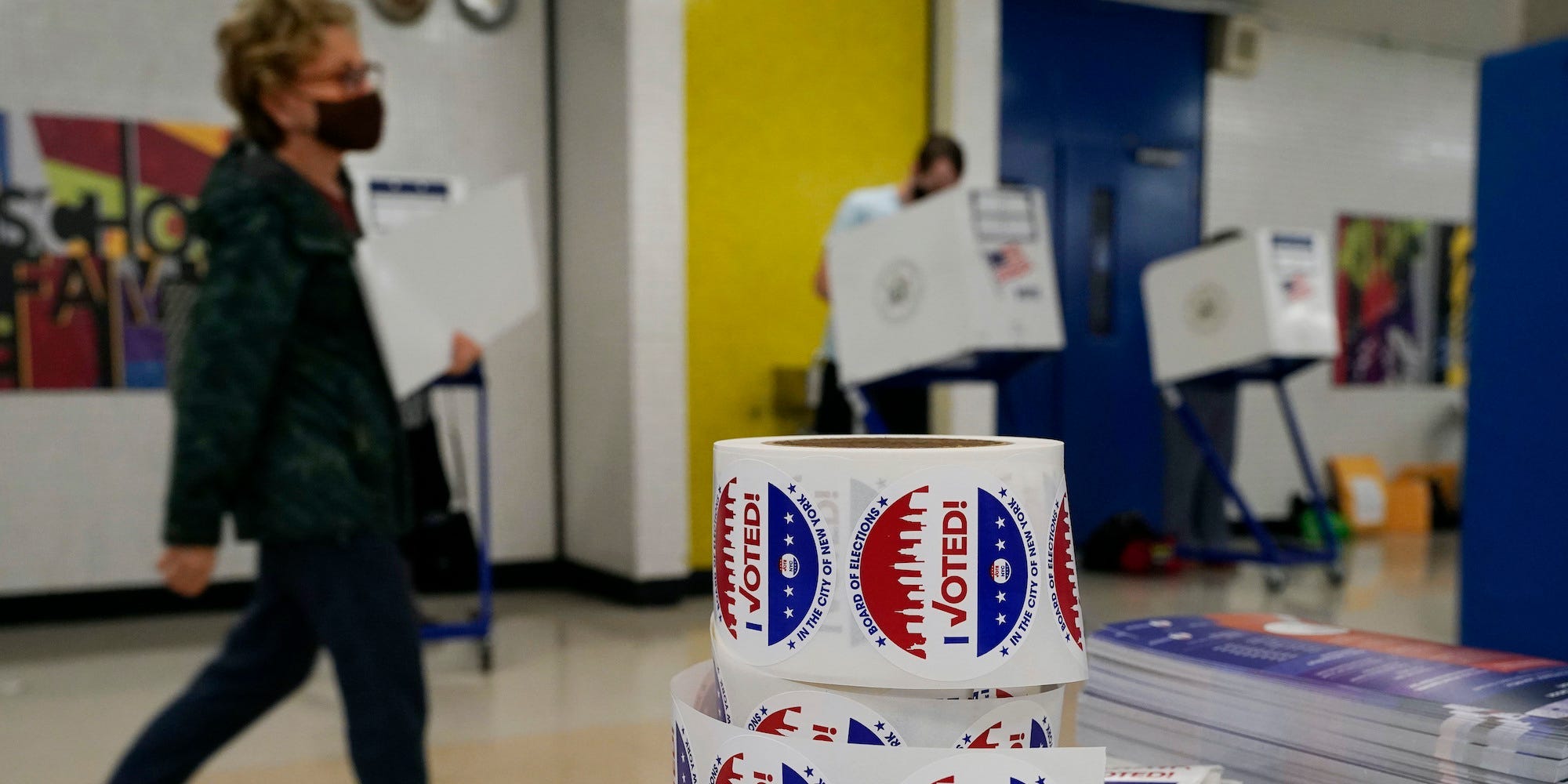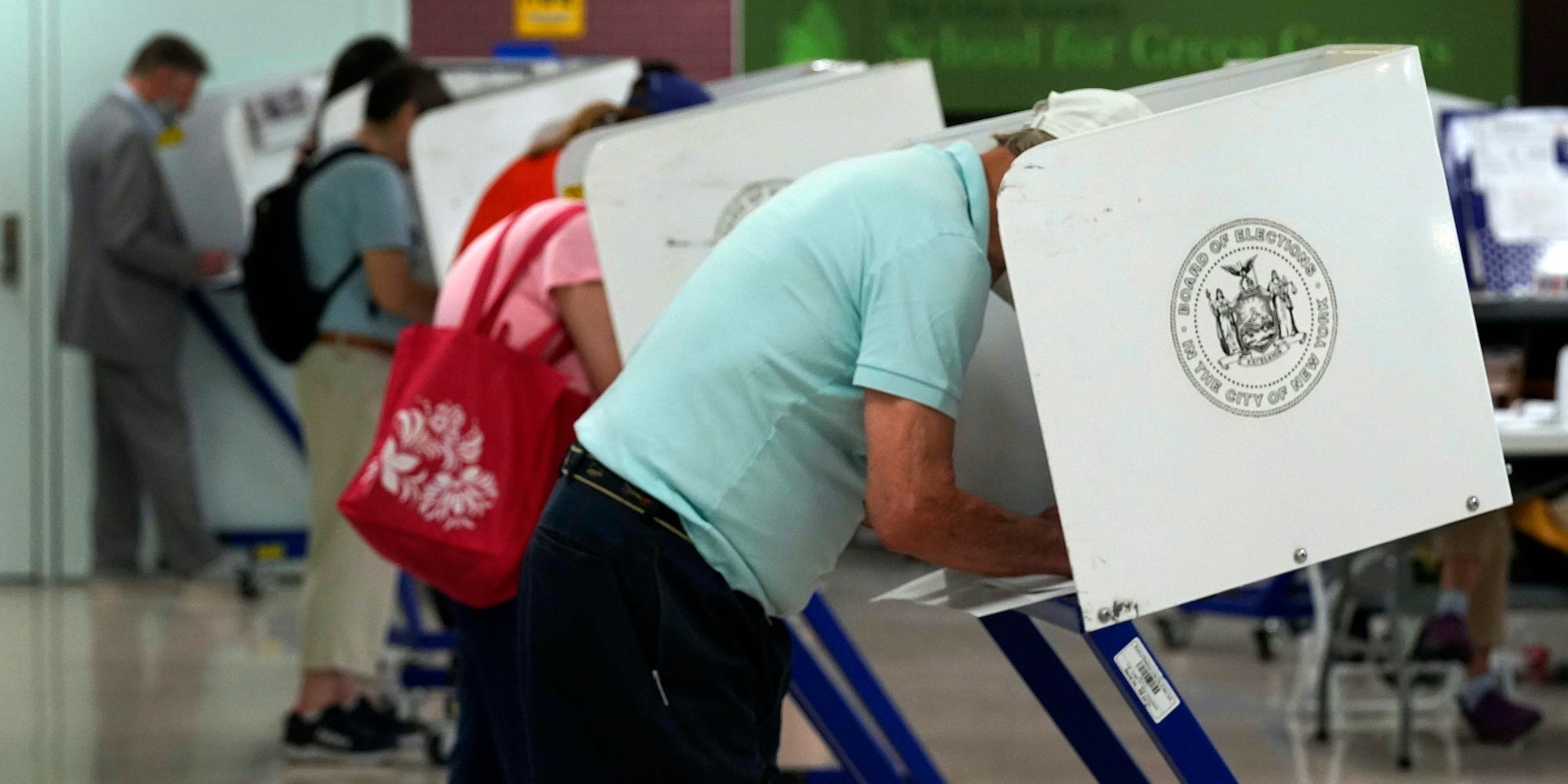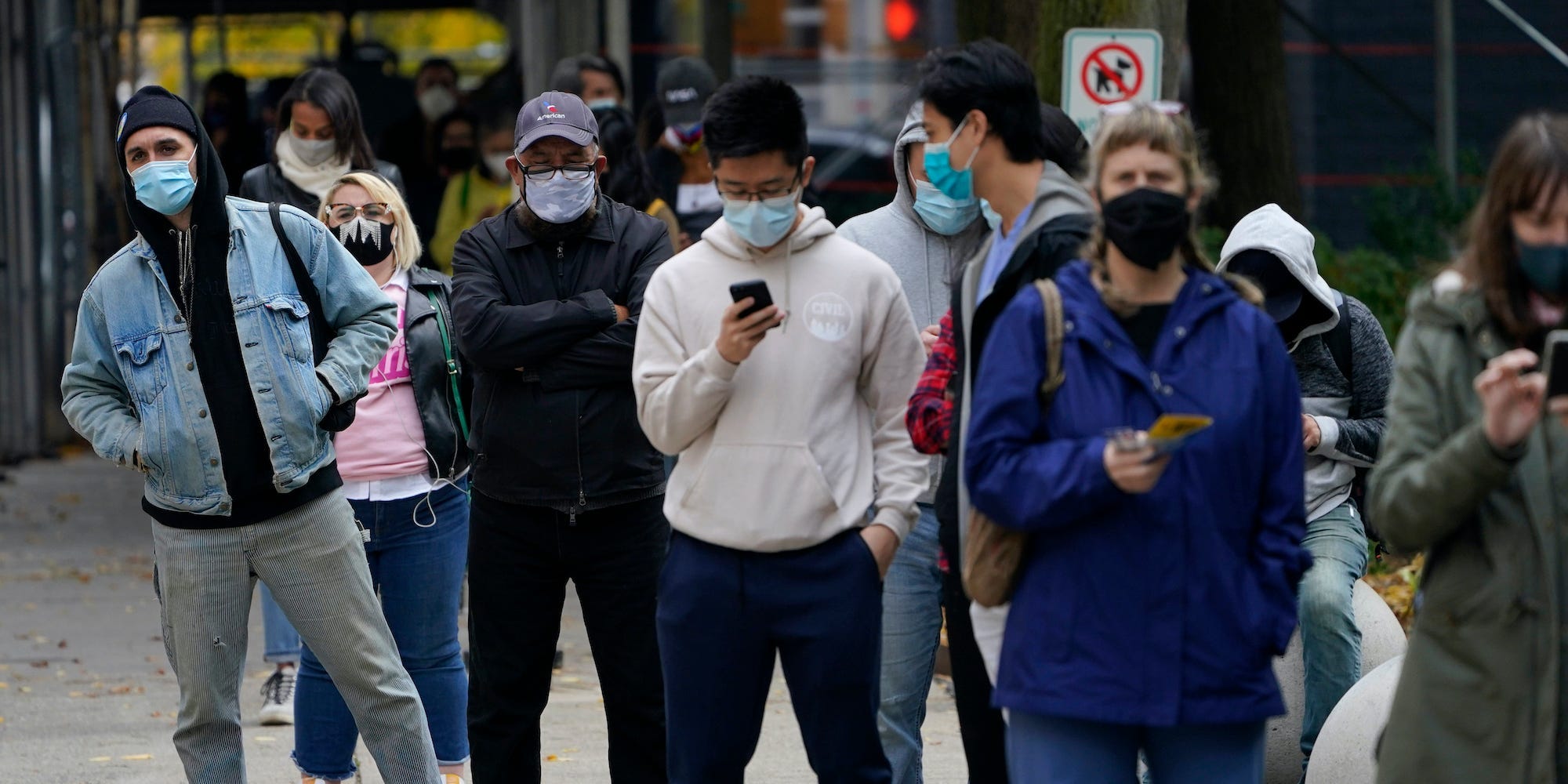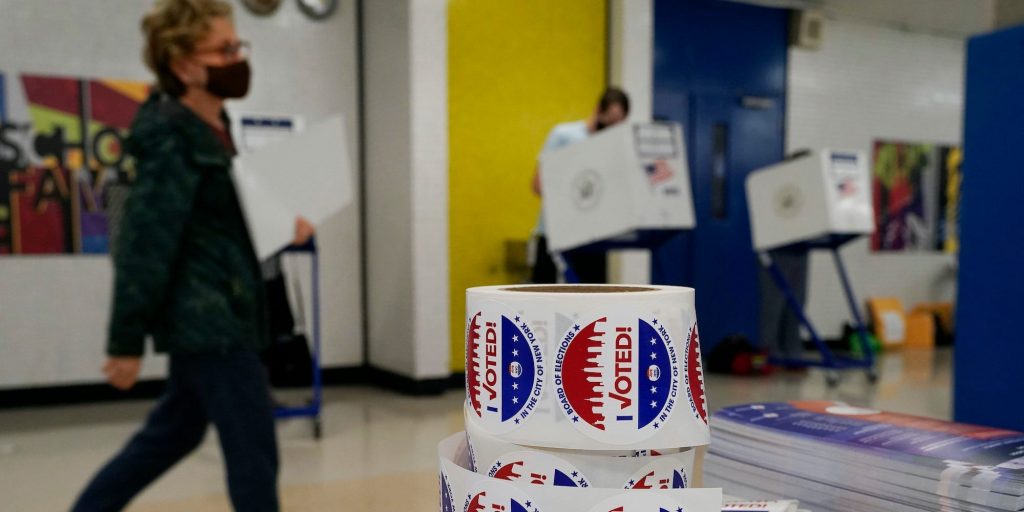
Richard Drew/AP
- NYC's snafu in reporting ranked-choice results is the latest in a long line of election problems.
- Critics say the incident wasn't a one-off, but emblematic of a fundamentally broken system.
- The embattled Board of Elections has long been a hotbed of nepotism and political cronyism.
- See more stories on Insider's business page.
The rollout of ranked-choice voting devolved into chaos on Tuesday night in the highly-watched New York City Democratic mayoral primary, when the city's Board of Elections announced that the results of the first rounds of ranked-choice votes included 135,000 test votes mistakenly left in the election management system.
The error, luckily, occurred during the release of incomplete, unofficial election results based only on in-person votes, not final tabulations that include a full accounting of absentee and provisional ballots. The Board plans to reupload election results and retally ranked-choice rounds.
Some politicians were quick to blame the ranked-choice system. But that explanation falls flat. Over 20 municipalities around the country have been successfully running ranked-choice elections for years with smooth tabulation and no hiccups on this scale. And, for those who have been following New York City elections for years, the failure was none too shocking.
"I, like most New Yorkers, I am pretty much aghast at another pretty big gaffe at the Board of Elections, the kind of gaffe that many of us have been calling out for a very, very long time" New York City Public Advocate Jumaane Williams said on a Wednesday press call hosted by Common Cause New York. "And the notion that somehow if we didn't have ranked-choice voting it would go smoother without is not one that I can agree with based on all the other issues we've had with the Board of Elections."
The way the Board of Elections is structured in New York has proven to be non-conducive to competent and transparent elections, advocates argue. The latest stumble in reporting ranked-choice results is just the latest in a series of missteps and failures by the embattled city Board of Elections.

AP Photo/Richard Drew
New York City has long been plagued with election problems.
Hours-long lines at the polls have been a fixture of New York City elections for years. In 2016, around 100,000 voters in Brooklyn were wrongly removed from the voter rolls, leading to a major lawsuit. In 2018, the Board blamed issues with ballot scanners that compounded long lines on the rainy weather.
In the 2020 primaries, voters saw absentee ballots rejected at extraordinarily high rates with little recourse, and in the general, a mixup with the Board's vendor resulted in tens of thousands of residents receiving absentee ballots meant for other voters.
Under the state constitution, boards of elections are required to be exactly bipartisan, with an even number of commissioners from both parties. In New York City, five commissioners from each party are nominated by political parties and approved by the city council, leaving voters with virtually no direct input as to who runs their elections.
While mandated bipartisanship may sound good in theory, the coupling of powerful county political party machines to the city's Board of Elections has only incentivized leaders to turn it into a receptacle of nepotism and a revolving door of political cronyism, critics say.
"One wildly incompetent error occurred in a Board of Elections that many of us have been saying are rife with problems to begin with," Williams, the New York City Public Advocate, said on the call Wednesday. "I believe, and we all know, right now, that the Board of Elections is a patronage mill. And it has to be broken up, and we have to change it."
As The New York Times documented in an October 2020 report, an unusually high number of staffers with scant qualifications are the relatives of local politicians. Employees have also been known to shirk basic responsibilities and duties by watching Netflix and going to the gym on the job or just not coming into work at all.
Just hours before the vote-tabulation error came to light, the BOE's Republican chairman Fred Umane said that the BOE may not be able to hold its weekly meeting next week - when RCV tabulations are set to continue - because too many staffers will be on vacation, WNYC's Brigid Bergin reported.

Seth Wenig/AP
The ranked-choice counting snafu could spur real reform.
The New York legislature passed reforms in 2019 and 2021 that expand voting options and modernized numerous antiquated aspects of New York's voting and election systems.
But it remains to be seen if this latest episode will finally push the state legislature to fundamentally reform the structure of the Board of Elections, as State Senator Zellnor Myrie, the chair of the Senate Elections Committee is hoping to accomplish.
"What happened last night has nothing to do with ranked choice voting, but reflects long running problems with how we structure election administration in this state," Myrie said in a Wednesday statement. "We've needed to reform the BOE since well before I was a Senator and I am committed to holding hearings ASAP to hear directly from voters and election officials with a focus on making significant changes at the BOE."
Completely changing the structure would require an amendment to the state constitution, which would need to be approved by both chambers of the legislature and then put directly to the voters on the ballot.
But lawmakers could still keep the board's structure while making big overhauls and reforms to professionalize the board and make it more accountable to city leaders, including with a bill proposed by State Sen. Liz Krueger that outgoing Mayor Bill de Blasio put out a fresh call for the legislature to pass on Wednesday.

